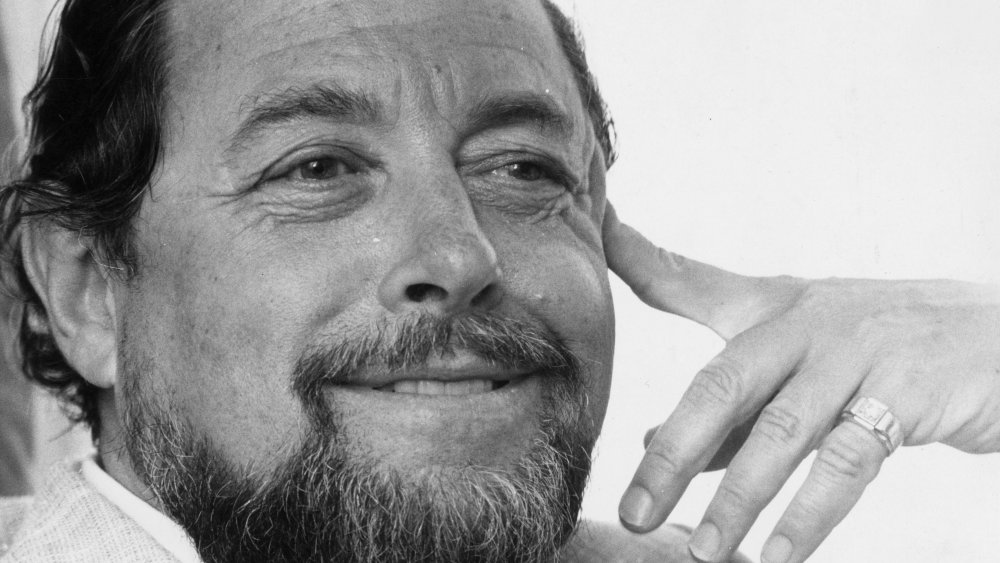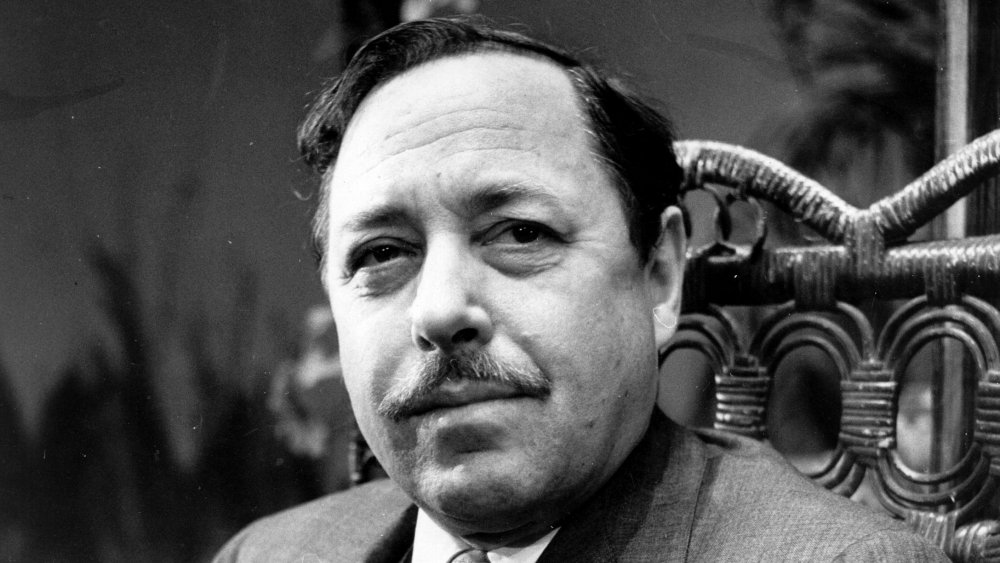The Truth About Tennessee Williams' Bizarre Death
Born Thomas Lanier Williams III, the man who grew up to be Tennessee Williams lived a life every bit as dramatic as the subjects of his stories. He was a sickly child with an alcoholic father, an eccentric mother, and a schizophrenic sister who became an early recipient of an ill-advised lobotomy. Being openly gay during his lifetime was an intimidating proposition, but Williams ran hard and fast with it, experiencing public, tempestuous relationships that would have made him verifiable Instagram fire if he'd just stuck it out for a few more decades.
It seems only natural, with all of that in mind, that the practiced showman would go out in the color he loved best: high drama. But the man behind The Glass Menagerie, A Streetcar Named Desire, and Cat on a Hot Tin Roof somehow managed to land himself one of the most anticlimactic endings in the history of entertainment.
Tennessee Williams never Tenne-saw it coming
Tennessee Williams was 71-years-old at the time of his passing, and he'd had a rough couple of decades. His incredible success in the 1940s had given way to relative obscurity and a series of failed plays. His mental health was, by most accounts, in a state of cascade failure: his difficulties with substance abuse meant increasingly troubled relationships, which in turn led to more problems with substance abuse. Exacerbating matters were the deaths of two of his longtime partners. Kip Kiernan, Williams' lost love, died at 26, and Frank Merlo, his lover for 14 years, lost his fight with lung cancer in 1963.
It was Merlo's death which sent Williams into a severe depression, and he looked to Dr. Max Jacobson (aka "Doctor Feelgood," sort of the mid-20th century real-world counterpart to 30 Rock's Doctor Spaceman) to help him out of his slump. A whole lot of amphetamines later, Mister Williams was, unsurprisingly, still not doing great.
It might have been his enthusiasm for mixed prescriptions that did Tennessee Williams in, but not in the classic, romantic, rock star sense. According to the New York Times, the author was apparently using a nasal spray bottle to administer doses of barbiturates, and accidentally inhaled the cap. He choked and died, alone in his room, unable to rely on the kindness of strangers.

